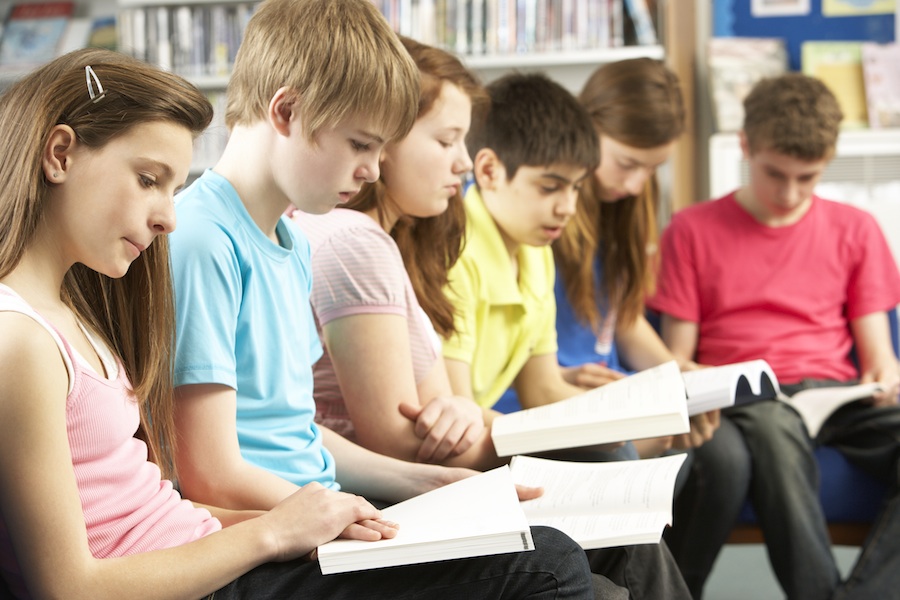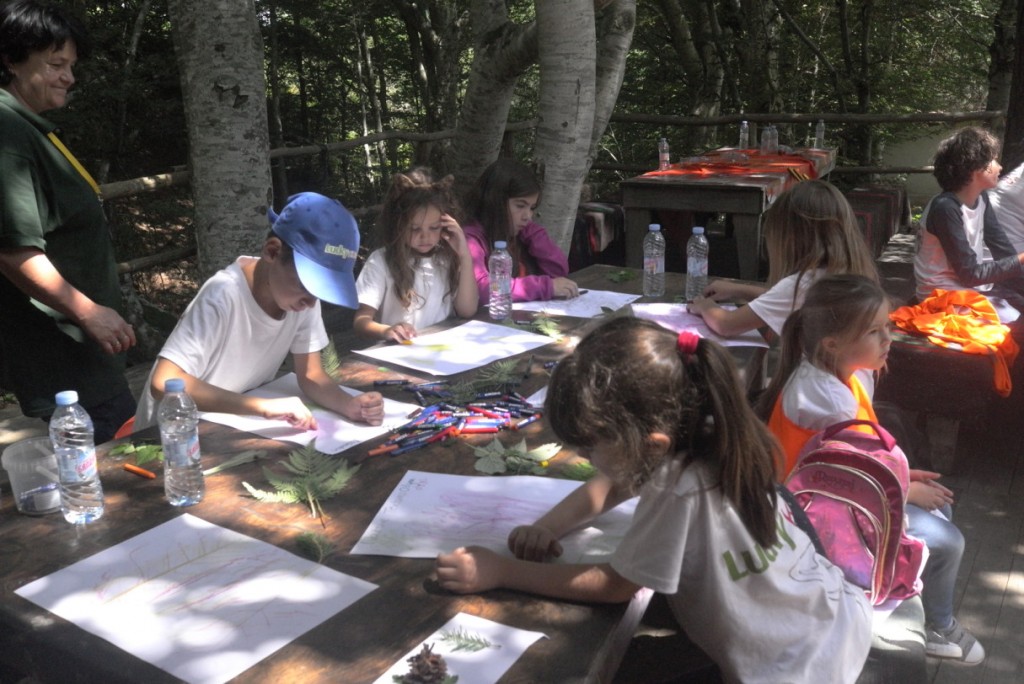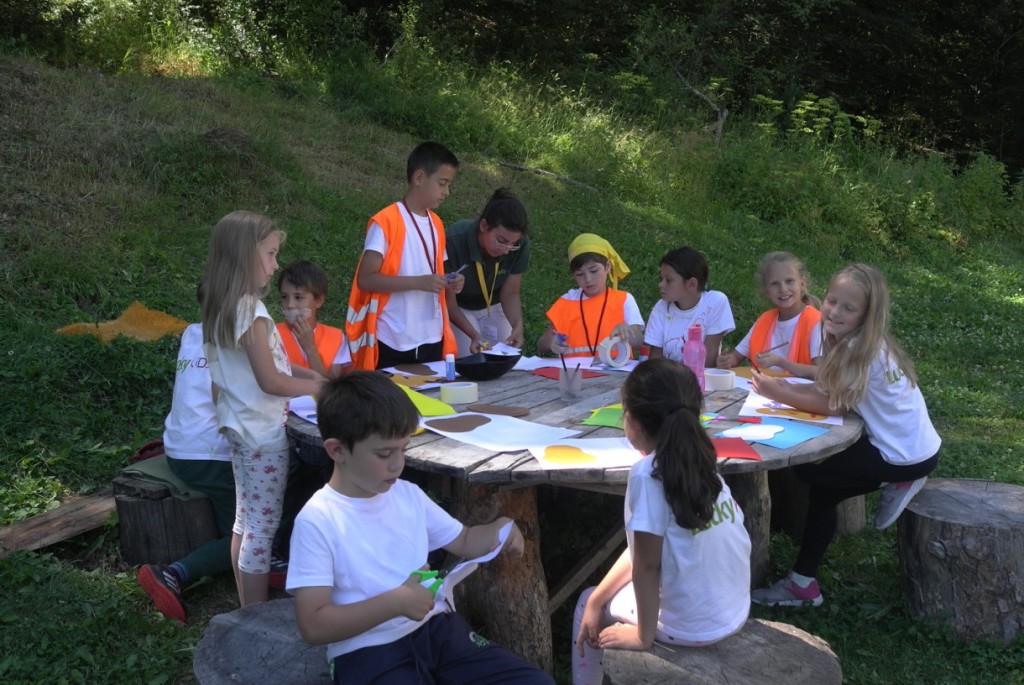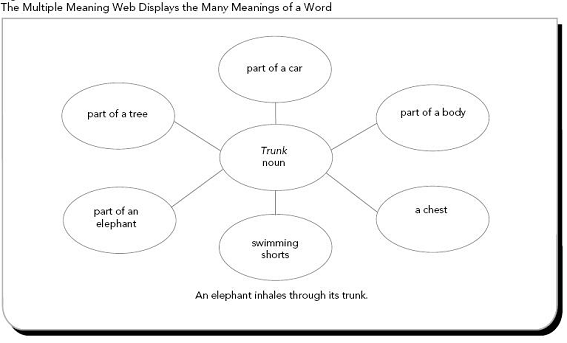Vocabulary is learnt naturally as you study a language, children absorb new words as they are heard. The same techniques apply whether we are talking about your own language or learning a new one. Nearly all children who attend LuckyKids are learning English as a second language, so let’s look at teaching new vocabulary to learners of a second language first.

When teaching children English, we have to speak clearly and normally, to introduce new words all teachers need to speak naturally, we do not simplify words. The reason behind ‘not simplifying’ is so children will ask “What does that mean?” which creates more communication between the teacher and student.
This in turn creates more listening practice for the other students in the class. Adults and teachers should never simplify language as children need to be treated like little adults when learning otherwise we are not teaching them the correct words that will be used later in their lives.
Listening is the main way we learn new words, children on average need to hear a word 4 to 12 times before remembering it. When doing a vocabulary game or exercise in the classroom children have to reuse the same word several times, this is done for the simply reason of making the word ‘stick’ in their minds.
Learn new english words with books and games
Games are a great way to help build vocabulary in a natural way. Only English is spoken to children at all times at Luckykids, this helps with the listening in a natural way. Any good teacher will ask a student who has difficulty with certain words to repeat them or ask them questions with that word several times to help the child remember the new vocabulary.

Another great way for students to learn new words is by reading, not just one book, but lots of books. Real books are best, when I say real books. I mean paper, hard back or soft cover, doesn’t really matter.
Books come in electronic form nowadays which is not good for the eyesight as children tend to spend too much time looking at screens anyway with mobile phones, TV’s and computers. So a good paper book is best! When reading, you always come across new words, students should be encouraged to lookup any new words they are not sure of or encouraged to work-out the meaning by context. (If you’re not sure what that means, it means working out the meaning by looking at the other words in the sentence.) Students should also be encouraged to keep a ‘Vocabulary diary’, this is a notebook of any new words they have learnt and so they can re-cap or refresh their memory later on.
Games are great for children to play, memory games to word games, board games, they are all good for building new vocabulary. I often use games in the classroom. This breaks the normal routine and makes the lessons more fun.
Scrabble is a great game for learning new vocabulary, but is not ideal for large classes, a normal board game like ‘Snakes and Ladders’ can be turned into a game for the classroom, by simply adding questions or each role of the dice, they must answer correctly otherwise they cannot go. It is encouraged for the last ten minutes of any language lesson to have a quick game to reinforce the new vocabulary or grammar point that has been learnt.
How do I get my child to remember the new vocabulary?
There are lots of techniques that you can try to use, but you have to remember that you will need to find the way that your child will remember the words better as each child is different. What will work for a relatives child might not work for your child, each child is unique, even in learning.

Writing is possibly the first technique I would recommend, this can be done through a diary of new words (vocabulary diary), or just a diary in general. Writing helps with memorising the words. ‘Lines’ as they used to use in schools is not really the best way, although it might work for some children.
Stories is another way for children to use new vocabulary, get them to write or tell their story using any new words, for example if you taught words associated with ‘Pirates’ then get them to use all the ‘pirate’ type of words in their story, like ‘peg-leg’, ‘patch’ etc. Children tend to like stories as they can let their imaginations go wild and they can be creative in their thinking.
Creativity is my second recommendation and is also very good, if your child likes making things or is artistic, getting them to be creative with paper, cardboard, pens and paint etc, is a great way for them to use and build on the vocabulary they have learnt.
You can ask them to make a house for example out of old shoe boxes and cardboard roles, then get them to explain what things are in the house, or ask them to make something like a chest of draws for the bedroom, or even get them to label the things that they have made.
Another good way is by using a ‘word web’ or an ‘association bubble’ to get children or students to remember new words, for example:

(image taken from: http://www.readingrockets.org/article/instruction-metacognitive-strategies-enhances-reading-comprehension-and-vocabulary)
If you get them to give you an example sentence for each bubble, they also practice the sentence formation with the associated word.
In conclusion, making learning enjoyable for the learner is more productive even if it seems a little off track. Students of all ages, especially children will remember more when they are having fun, so make any English tuition enjoyable for them. I quite often make jokes and act a bit silly in class, this works; even ‘Grammar time’ can be fun ;-).
Homework from their main stream school might be boring, one good thing that works for me and my son, is to do something fun with them if they complete their homework, could be something as simple as going out for an ice-cream. FUN is key when teaching children!
Written by:
Neil Waters (Coordinator LuckyKids)

